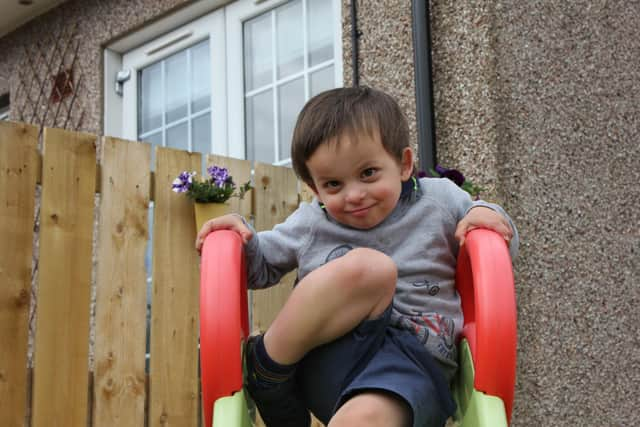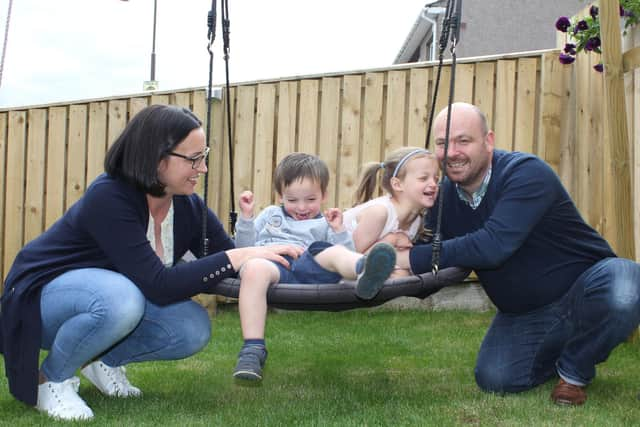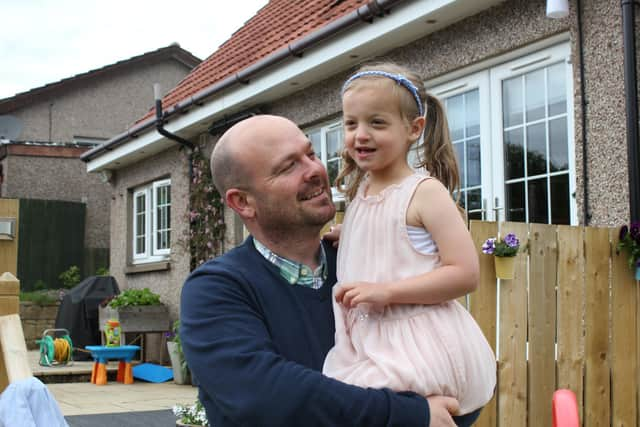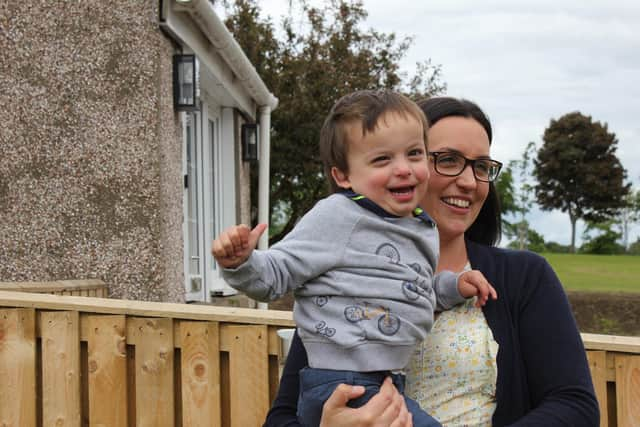Siblings with only known case of genetic flaw in the world find DNA hope in US
Five-year-old Lily Arnott and her brother Benjamin, 3, from Penicuik, were both born with an extra chromosome, made up of uneven parts of chromosomes 21 and 16.
They are thought to be the only people in the world with a chromosome disorder so unique that there is no name for it.
As a result of the chromosome imbalance, Lily and Benjamin have global development delay, learning disabilities and hypermobility with their condition most similar to Down’s syndrome.


Advertisement
Hide AdAdvertisement
Hide AdBoth are still in nappies, struggle with verbal communication and have a variety of health complications. Lily is prone to renal infections and Benjamin has a similar challenge with chest infections.
Now a glimmer of hope has been offered to parents Kenny, 42, and Crystal Arnott, 38, after they signed up to an international database that helps track down and pair families with extremely rare chromosome and gene disorders.
The Arnotts are among 684 families in Scotland who have signed up to the database, run by Surrey-based charity, Unique.
While a complete match has not been found, the family has been paired with four people in America that have similar chromosome disorders.


Among these is a 27-year-old man from the USA who the Arnotts hope will help them begin to piece together the puzzle of Lily and Benjamin’s development.
Mr Arnott said: “As our children are the only people in the world on record with this genetic makeup we have no way to gauge their development.
“Speaking to families who have similar children, maybe older, could help us work out what road they may go down.
“Ordinary milestones mean nothing to us, but this will hopefully give us part of the puzzle and help give us more of an idea of where our children should be.”


“It can be lonely”
Advertisement
Hide AdAdvertisement
Hide AdMr Arnott praised their local primary school and support services for the “excellent support” provided but said "it can be lonely” being the only family in the world living with this rare genetic condition.
“We’ve had dark days,” he said.
The father added: “It was really difficult when it was first confirmed.The genetic counsellors were great but they couldn't tell us what the long-term outcome would be for Lily and Benjamin. Every day we are learning as we go.”


Despite their uncertain future and medical complications, Lily and Benjamin are full of character and fun.
For now, Mr and Mrs Arnott are taking each day as it comes, enjoying their children as they are while hoping genetic matching will bring them more answers.
Mrs Arnott said: “They are so much fun, Lily loves her princess dresses and dancing and Benjamin is just a typical wee boy who likes getting muddy and crawling in cardboard boxes.”
“To look at our children is to look at any other child, it’s only when they start to walk and talk you can see they are different,” added Mr Arnott.
“We don’t know what Lily and Benjamin’s future looks like but right now they are just a five and a three-year-old enjoying life, which is the way we want it to be.”
What is Lily and Benjamin’s unnamed chromosome disorder?


Before Lily was born in 2015, Mr and Mrs Arnott suffered a string of miscarriages which genetic testing linked to a chromosomal flaw - known as a "balanced translocation".
Advertisement
Hide AdAdvertisement
Hide AdAlthough normally harmless, balanced translocation can lead to problems conceiving and increases the risk of duplicate or missing pieces of chromosome in offspring. This can sometimes lead to learning disabilities, developmental delays and health problems.
When Lily was born in 2015 her parents noticed she was missing key development milestones and took her for genetic testing.
Results showed she had an extra chromosome strand - in addition to the 46 strands which normally make up the 23 pairs - which comprised a large section of her maternal chromosome 21 and a shorter portion of the maternal chromosome 16.
The family received these test results when Mrs Arnott was already pregnant with Benjamin who was tested after birth. Results showed that he shared his big sister’s unusual genetic arrangement, making them the only two recorded cases in the world.
A message from the Editor:
Thank you for reading this article. We're more reliant on your support than ever as the shift in consumer habits brought about by Coronavirus impacts our advertisers.
If you haven't already, please consider supporting our trusted, fact-checked journalism by taking out a digital subscription.
Comments
Want to join the conversation? Please or to comment on this article.